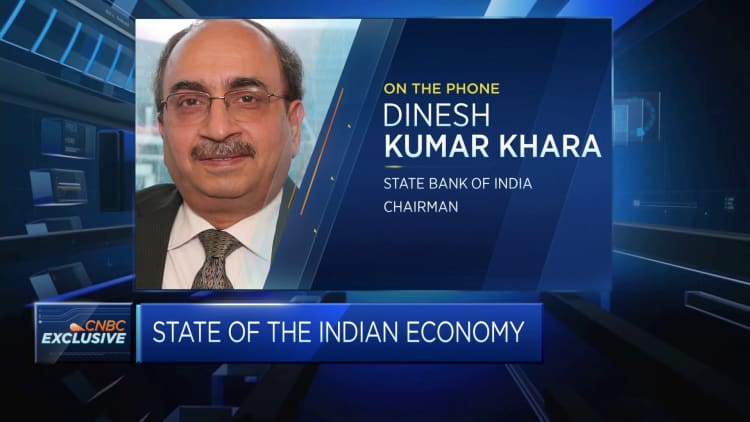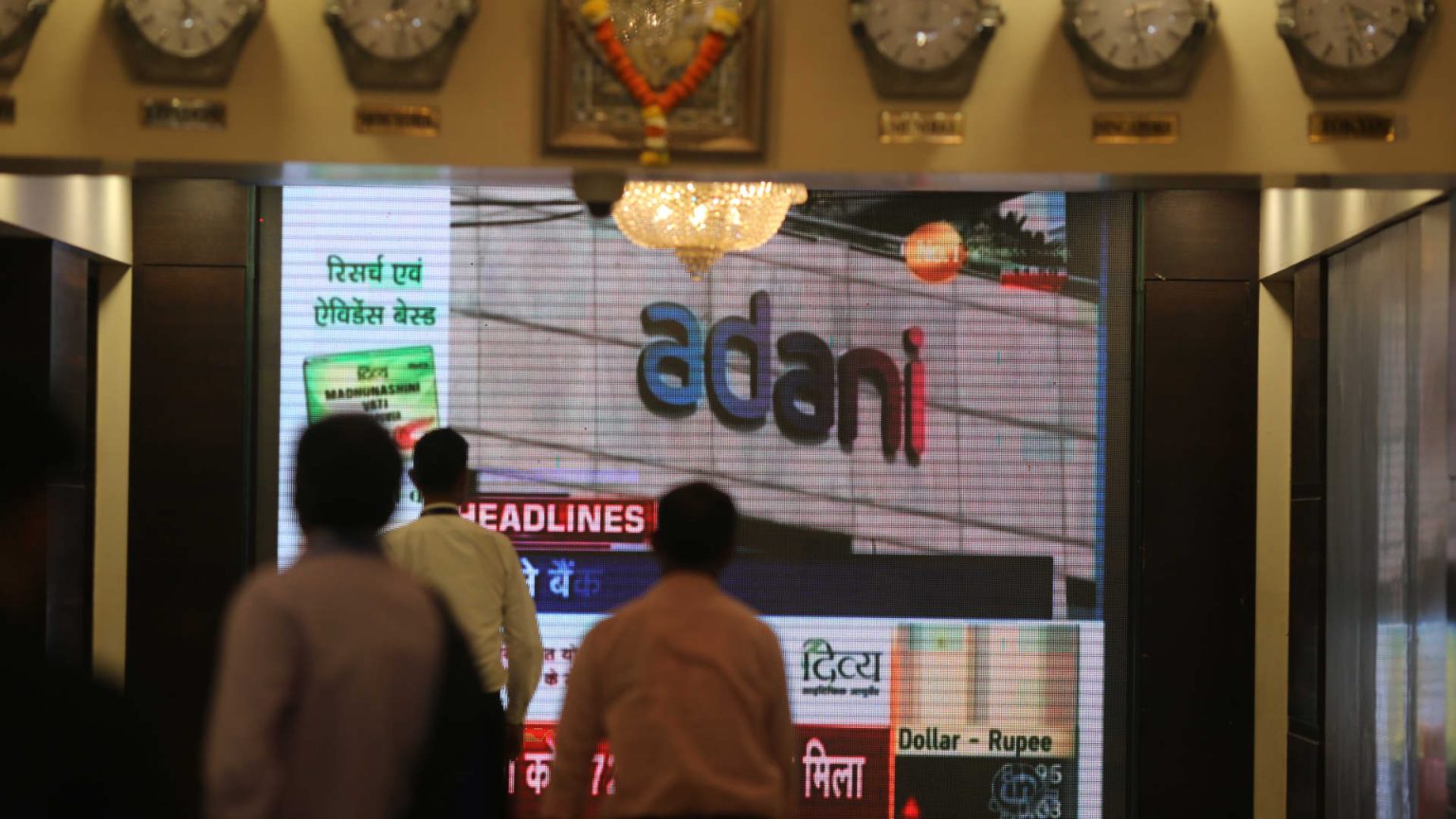People walk past a screen displaying news featuring on Adani Group inside the BSE building in Mumbai, India, on Thursday, Feb. 2, 2023.
Bloomberg | Bloomberg | Getty Images
U.S. private equity group Bain Capital said its recent agreement to buy Adani Capital was aimed at tapping the “underbanked” segment of India’s economy.
In July, the Boston-based firm agreed to acquire 90% of Adani Capital and Adani Housing, buying out all of Indian billionaire Gautam Adani family’s private stake in the company.
The deal will provide a crucial lending platform to India’s micro, small and medium enterprises — a market that is growing rapidly, said Barnaby Lyons, a partner and global co-head of Bain Capital Special Situations.
“Just the structurally underbanked nature of the economy means that there is a … need for innovative finance platforms like Adani Capital,” he told CNBC’s “Street Signs Asia” on Thursday.
“This specific business sits in a segment — small lending to micro SMEs, the agricultural space and affordable housing, which actually benefits from some of the best demand supply dynamics.”
Despite the structural growth trends in this segment, “the granular nature of the lending makes it difficult for the traditional banks to access,” Lyons added.
India’s micro, small and medium enterprises, contribute around 30% of its gross domestic product. But only 10% of those have access to a formal source of credit to support their growth, Bain said in a statement, citing Indian government data.
In the statement, Rishi Mandawat, a partner at Bain Capital said the Adani Capital team has “built a scale lending business that supports entrepreneurialism and is trying to solve the $300 billion+ unmet retail MSME credit demand in the country.”
Bain also pledged $120 million in primary capital to the company and an additional $50 million liquidity line in the form of non-convertible debentures.
Gaurav Gupta will continue to serve as Adani Capital’s managing director and CEO and retain the remaining 10% stake in the company, Bain said.
Deal follows fallout
Adani Capital, the non-banking financial arm of the Indian conglomerate Adani group, started its lending operations in April 2017.
“I am very happy that a credible investor like Bain Capital is stepping in now and this will help the business grow manifold from here,” said Gautam Adani, chairman of the Adani Group, last month.
The deal comes after a tumultuous year for one of India’s richest tycoons, who faced allegations from U.S. short-seller firm Hindenburg Research.
On Jan. 24, Hindenburg released a damning report accusing Gautam Adani — India’s richest man at that time — of pulling the “largest con in corporate history.” The report alleged the conglomerate engaged in stock manipulation and fraud.
The Adani Group firmly denied any wrongdoing, calling the report a “calculated attack on India” and its institutions.
Still, the fallout led Adani’s net worth to plunge, following a shares rout in the ports-to-energy conglomerate earlier this year.

Asked if headwinds faced by the Adani Group played a part in Bain’s calculations, Lyons said, “It was a non-core asset for the wider Adani Group and there’s no material linkages between the businesses on a go forward basis.”
“This is a business that will be controlled by Bain Capital in partnership with Gaurav Gupta, and run by us for the long run,” he added.
Bain’s deal follows other international investments from companies like GQG, which raised its stake in Adani’s conglomerate by about 10% in May.
The buyout is expected to close in the fourth quarter of this year, pending regulatory and market approvals.
Read the full article here




